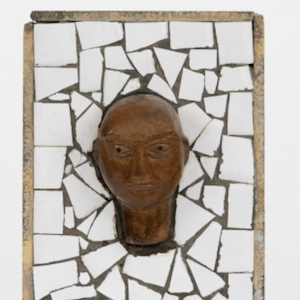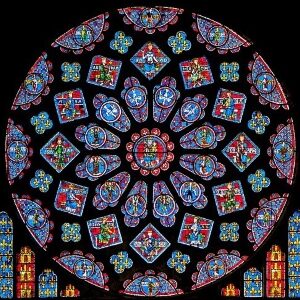Keep it a secret
By Melinda Aissani
If you are going to read the piece below, you are urged at all costs to keep it secret. When films are drawn from true stories, they can be sensational and intrigue us more. Hidden Figures, The Conjuring, Titanic, Bohemian Rhapsody and The King’s Speech, are all iconic’s films and all true stories; not fictional movies, but reality. Thinking that a person has really lived this story, we may well empathise and link with the story better. We put ourselves in the place of the character. Sometimes maybe, we might even like to be in the place of the character… Well, have you ever thought of becoming a spy? Working for the secret services, having a double life, creating false identities, going to spy on neighbouring countries? There’s an interesting story about that, but just remember, keep it to yourself because it’s top secret. Find out more here in Keep it a Secret.
Meet the new exhibition, Ungentle, coming to Studio Voltaire from 16 September 2022 to 8 January 2023. The major new film commission is based on a new script by Huw Lemmey and directed by Onyeka Igwe. A new film that talks about and explores the complicated relationship between espionage and male homosexuality. Via Britain’s fertile culture of spy culture from the 1940s onwards.
The Cambridge Spy Ring was a ring of spies in the United Kingdom. That passed information to the Soviet Union during World War II. All five were convinced that the Marxism-Leninism of Soviet Communism was the best available political system. Especially the best defence against the rise of fascism. So, they became recruited by the NKVD, later KGB during the 1930s. Then worked for the Soviet Union during the Second World War and the Cold War that followed it. However, up to 17 agents were recruited at that time, and many of them developed relationships with the Homintern- A conspiracy of homosexual elites who controlled the art world network.
Ungentle, is a thoughtful reflection on the psychogeography of spy histories from a multi-perspective. It draws on the life stories of a number of critical homosexual figures in British espionage. Including famous Cambridge Five “traitors” including Anthony Blunt and Guy Burgess, as well as loyal operatives Denis Rake, Noël Coward and Hardy Amies. Based on reality, the character of the film embodies their positions as both spies and gay men in the mid–20th century troubled by sex, secrecy, politics and imperialism.
Amalgamating fact with fiction, the narrative concurrently makes reference to Britain’s fertile culture of both spy literature and gay literature. The film also makes reference to the literary and visual languages of British spy movies and the literature of John Le Carré.
The film locates examples of these in relation to landmark sites. Such as the “Tin and Stone Bridge” in St James’ Park for its spectacular views across St James’s Park Lake to Buckingham Palace to the west and Horse Guards Parade, Big Ben and the London Eye towards the east. And 55 Broadway, for its main operating base for the Secret Intelligence Service. But also historical scandals such as the Profumo Affair, the Cambridge Five and the Vassall affair.

Huw Lemmey in collaboration with Onyeka Igwe 55 Broadway London Still from Ungentle, 2022 Courtesy of the artist and Studio Voltaire. Photo: Phil Beard
In the years following the First World War, two social and political models of reference were facing each other in the United Kingdom. The first one, the social-political model, is typically British, economically liberal, socially and politically conservative, and characterised by strong class disparities, which led to the elimination of the ruling class that had dominated the country in the previous period and embodied this model.
The other one is a young and dynamic political model, inspired by the principles that had guided the October Revolution, led by Bolshevik Party leader Vladimir Lenin launched a nearly bloodless coup d’état against the Duma’s provisional government. This had a great influence on many young Britons who were in search of greater social freedom and morals and were inclined to embrace the communist ideology. Most of these young people came from the upper classes and were, therefore, highly desirable targets for Soviet espionage.

Huw Lemmey in collaboration with Onyeka Igwe Still from Ungentle, 2022 Photo: Morgan K. Spencer
The Cambridge Five belonged to this category of young people who, motivated by their convictions, were willing even to betray their own country. It should be emphasized that the Cambridge Five did not betray their homeland out of greed or self-interest, but were driven by an absolute faith in the communist ideal.

Image, Huw Lemmey in collaboration with Onyeka Igwe Still from Ungentle, 2022
Photo: Morgan K. Spencer
What emerges is a portrait of the shared experience of community and secrecy between gay men and spies.
The general public first became aware of the conspiracy after the sudden flight of Donald Maclean and Guy Burgess to the Soviet Union in 1951. Suspicion immediately fell on Harold “Kim” Philby ( who eventually fled the country in 1963. Anthony Blunt and then John Cairncross, who have come to be seen as the last two of a group of five.
Donald Duart Maclean was a British diplomat who conveyed government secrets to the Soviet Union during World War II and early on into the Cold War. Maclean studied at the University of Cambridge in the early 1930s, where he met Guy Burgess. Burgess was also a British diplomat who spied for the Soviet Union in World War II and early on into the Cold War. They both disagreed with the idea of capitalism.
Guy Francis de Moncy Burgess, was a British diplomat and soviet agent. After leaving Cambridge, Burgess worked for the BBC as a producer, but also at the Foreign Office, Burgess acted as a confidential secretary to Hector McNeil, the deputy to Ernest Bevin, the Foreign Secretary. This post gave Burgess access to secret information on all aspects of Britain’s foreign policy during the critical post-1945 period, and it is estimated that he passed thousands of documents to his Soviet controllers.
Anthony Frederick Blunt was a professor of art history at the University of London, director of the Courtauld Institute of Art, and Surveyor of the Queen’s Pictures. He was a leading British art historian who in 1964, after being offered immunity from prosecution, confessed to having been a spy for the Soviet Union. He was considered to be the “fourth man” of the Cambridge Five. The height of his espionage activity was during World War II when he passed intelligence on Wehrmacht plans that the British government had decided to withhold from its ally.
John Cairncross was a British civil servant who became an intelligence officer and spy during the Second World War. As a Soviet double agent, he passed to the Soviet Union the raw Tunny decryptions that influenced the Battle of Kursk. He was alleged to be the fifth member of the Cambridge Five. The most significant aspect of his work was helping the Soviets defeat the Germans in major World War II battles; he may also have told Moscow that the US was developing a nuclear bomb.
The piece of work was put together by Huw Lemmey and Onyeka Igwe.
Huw Lemmey is an artist and writer. He has published two novels, Red Tory: My Corbyn Chemsex Hell (2019) and Chubz: The Demonization of My Working Arse (2015). Lemmey writes on digital
culture, sexuality and politics for publications including, L’Uomo Vogue, The Guardian and The White Review, and others. This new film work has developed directly from a walking tour by Lemmey, commissioned by Studio Voltaire in 2018 as part of the off-site project Rainbow Aphorisms.
Onyeka Igwe uses dance, voice, archive and text to expose a multiplicity of narratives in her non–fiction video work. The work explores the physical body and geographical place as sites of cultural and political meaning.
They put in this film their knowledge, of the British spies to reveal us secrets during the espionage.
So when you watch this movie, please keep it a secret.
Meet the new exhibition, Ungentle, coming to Studio Voltaire from 16 September 2022 to 8 January 2023. The major new film commission is based on a new script by Huw Lemmey and directed by Onyeka Igwe.
September–16 22 8th January 2023 Studio Voltaire
If you enjoyed Keep it a Secret check out Echoes here
.Cent Magazine, London. Be Inspired; Get Involved.





